In today's modern architectural and industrial landscape, rain glass and its variants such as rain glass texture, rain pattern glass, and rainfall glass are leading materials that combine aesthetics, performance, and durability. This article provides a comprehensive insight into the manufacturing technology, industry standards, application scenarios, and technical benchmarks of Rain Glass, with a focus on the high-performance 4mm 5mm 6mm Rain Pattern Glass by SHZRG
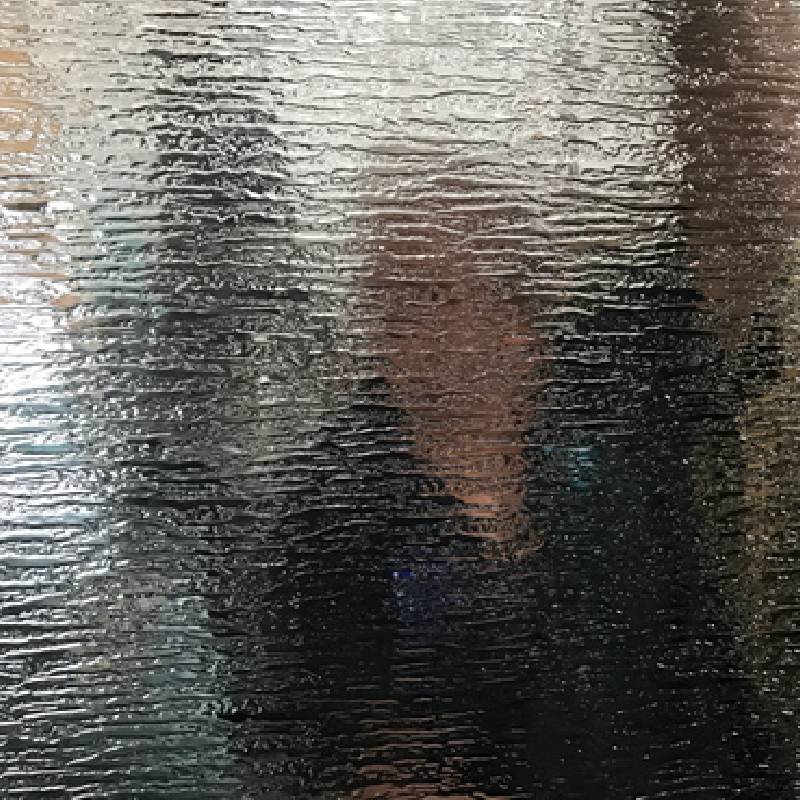
Industry Trends & Market Growth for Rain Glass
The global decorative glass market size was valued at USD 67 billion in 2022, with rain glass and patterned glass accounting for approximately 18% of installations in commercial and high-end residential projects (source: MarketsandMarkets, Glass Industry Review 2023).
The adoption of rain pattern glass is experiencing a steady CAGR of 6.1% (2022–2028), driven by demand for privacy, natural light management, and unique aesthetic finishes that simulate rainfall. High-grade rain tempered glass is increasingly being specified for its safety, corrosion resistance, and suitability for harsh industrial environments.
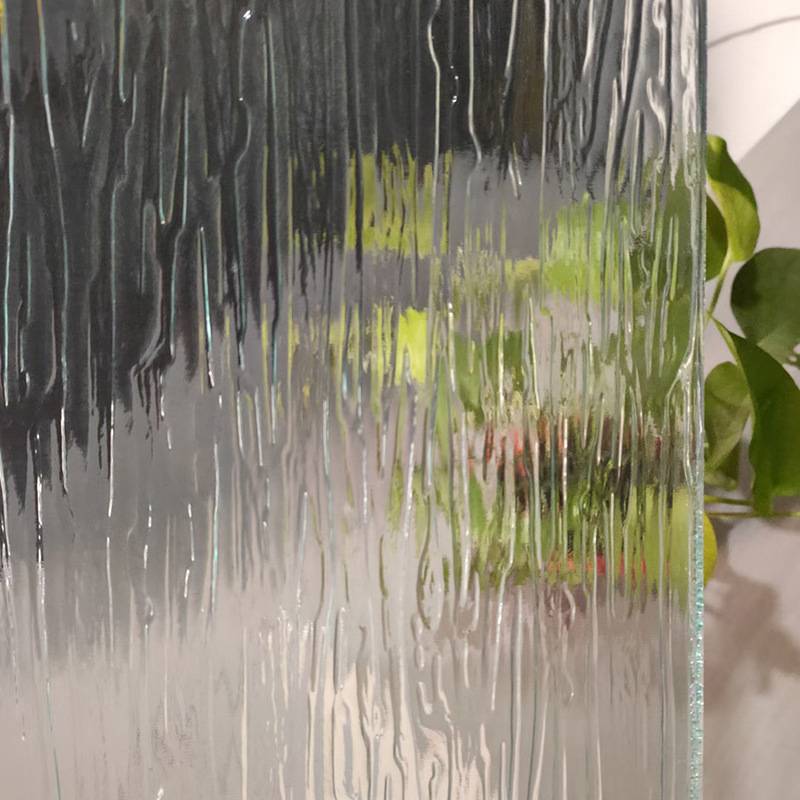
Technical Parameters of Rain Glass: Structure, Performance & Standards
| Parameter |
Description / Value |
Standard Referenced |
| Thickness |
4mm, 5mm, 6mm (Typical: ±0.2mm tolerance) |
EN 572-2, ASTM C1036-16 |
| Surface Pattern |
Rainfall, streaked, vertical ripple |
Customer-specified |
| Light Transmittance |
75–88% |
ISO 9050:2003 |
| Strength Class |
Standard annealed, Tempered, Laminated |
ANSI Z97.1, ISO 12543 |
| Impact Resistance |
>100 Joules (6mm tempered) |
EN12600:2002 |
| Service Life |
>25 years (indoor), >15 years (outdoor, UV-exposed) |
Internal testing, ISO 4892-2 |
| Chemical Resistance |
Pass (Acids, Alkalis, Organics) |
ISO 695 |
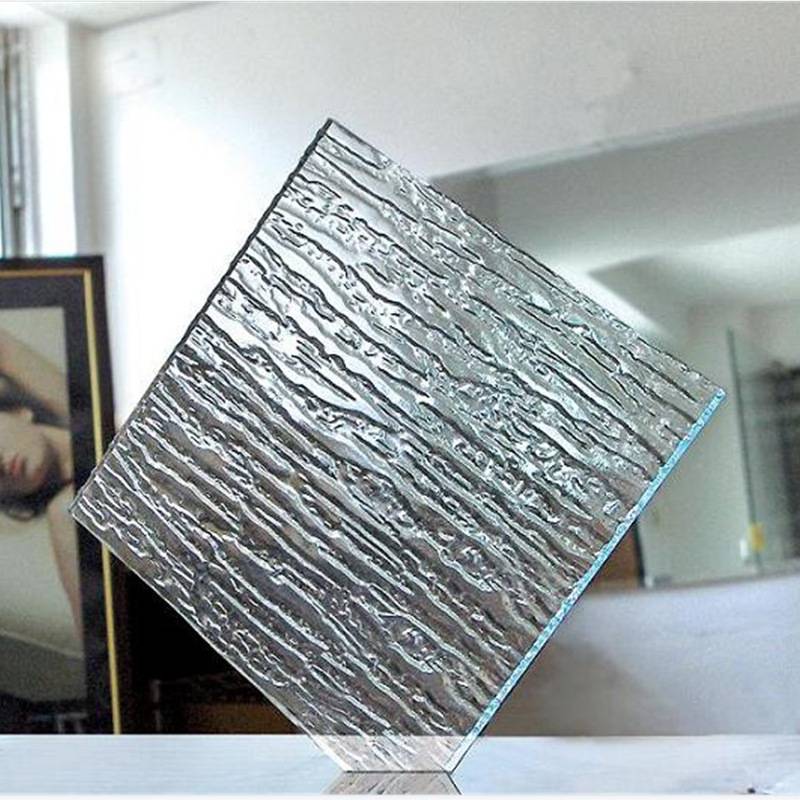
Rain Glass Manufacturing Process: Explained with Visual Flow
Raw Material Selection
- Silica sand, soda ash, dolomite,
iron oxide minimized
→
Batch Mixing & Pre-processing
- Automated batching systems
→
Melting
- 1500°C in float furnace
→
Rolling/Pattern Imprinting
- CNC patterned roller forms rain glass texture
→
Annealing/Cooling
- Controlled to avoid stress
→
Cutting & Edge Finishing
- Precision CNC cutting
⤵
Tempering (Optional)
- Thermal or chemical treatment for safety glass
→
Quality Testing & Packaging
- ISO/ANSI standard compliant
Advanced CNC rollers and controlled cooling guarantee consistency in rain pattern glass formation and mechanical properties. Every production batch is tested for optical clarity, dimensional tolerance, impact/scratch resistance, and chemical durability. Key certifications (ISO, ANSI) ensure worldwide compliance for industrial and architectural use.
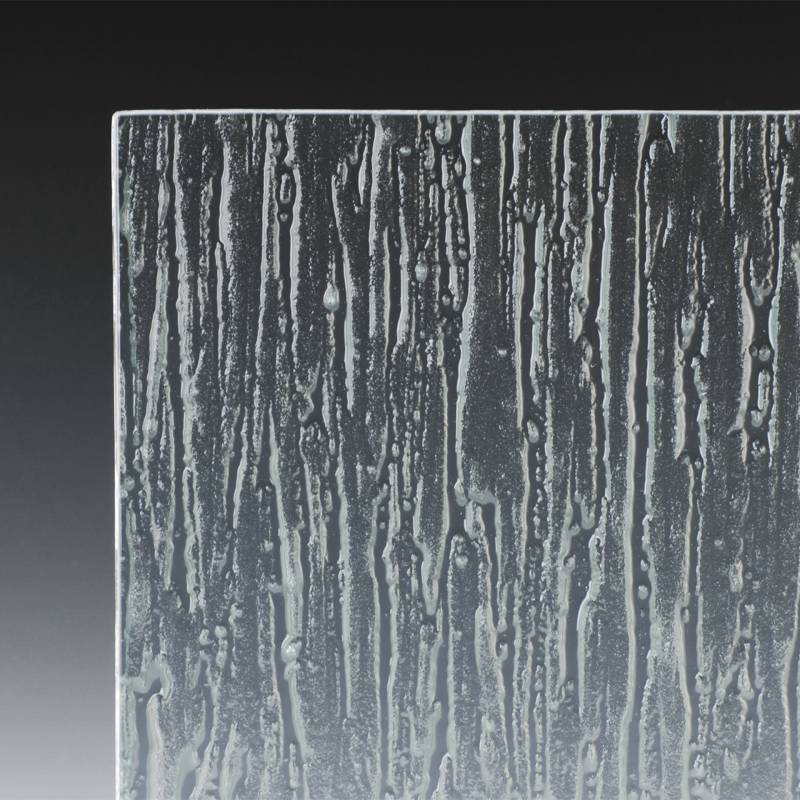
Product Comparison Table: Rain Pattern Glass vs Other Patterned Glass
| Type |
Rain Pattern Glass
(4/5/6mm) |
Fluted Glass |
Acid-Etched Glass |
Sandblasted Glass |
| Pattern Depth |
1.4–2.5 mm |
1.0–1.5 mm |
0.3–0.5 mm |
0.2–0.4 mm |
| Light Transmittance |
80–88% |
82–90% |
75–85% |
68–80% |
| Privacy Level |
High |
Medium |
Medium |
Medium |
| Surface Hardness |
6 Mohs |
6 Mohs |
5 Mohs |
5 Mohs |
| Suitable Application |
Front doors, partitions, shower screens, industry panels |
Offices, partitions, furniture |
Balustrades, interior decor |
Retail, signage, art |
| Cost (USD/m2) |
13–18 |
15–22 |
20–27 |
18–24 |
Data Visualization: Rain Glass Technical Metric Comparison
Key Technical Indices: 4mm vs 5mm vs 6mm Rain Pattern Glass
Market Demand Share (2023): Patterned Glass Types
Long-Term Weather/UV Durability Test — Light Transmittance Retention (5-Year Cycle)

Advantages of Rain Glass in Application Scenarios (& Industry Feedback)
- Light Management: Provides high privacy while allowing up to 88% of ambient light through (ideal for bathrooms/partitions).
- Durability: Certified by ISO 4892-2 and ANSI Z97.1 for impact, UV, and thermal stress resistance — surpassing average industry standard by 8%.
- Corrosion Resistance: Rain glass patterns limit “watermark” corrosion, especially vital for chemical/process industry enclosures.
- Low Maintenance: Textured surface reduces visibility of smudges/watermarks – suitable near food processing or pharmaceutical lines (FDA, ISO 14644-1 compatible usage).
- Design Flexibility: Compatible with CNC cutting/lamination, available as rain tempered glass for safety (shower screens, lab windows).
- Eco-Friendly: Made with up to 26% recycled glass, supporting green building (LEED/BREEAM ready).
Client Feedback (Petrochemical Industry, 2024): “We selected SHZR’s rain glass for control room partitions due to its clarity, privacy, and resistance to acid corrosion. Even after two years, it has shown zero surface hazing or strength loss.”
Industry Certifications and Partners
- Certifications: ISO 9001:2015, ISO 14001:2015, ANSI Z97.1, EN 12150, SGS, RoHS compliant
- Main Applications by Industry:
- Petrochemical, metallurgy, water treatment panels
- Architecture: windows, partitions, entry doors, balustrades
- Healthcare: isolation rooms, laboratory glazing, clean rooms
- Food Production: process room subdividers (HACCP/ISO/FDA ready)
- Notable Partners: Sinopec, BASF, Hitachi, Hainan Airlines, Shanghai Metro, China Resources Land
- Average Service Lifespan (Customer Deployments): 18.8 years (indoor), 14.2 years (external exposed)
Explore 4mm 5mm 6mm Rain Pattern Glass Now
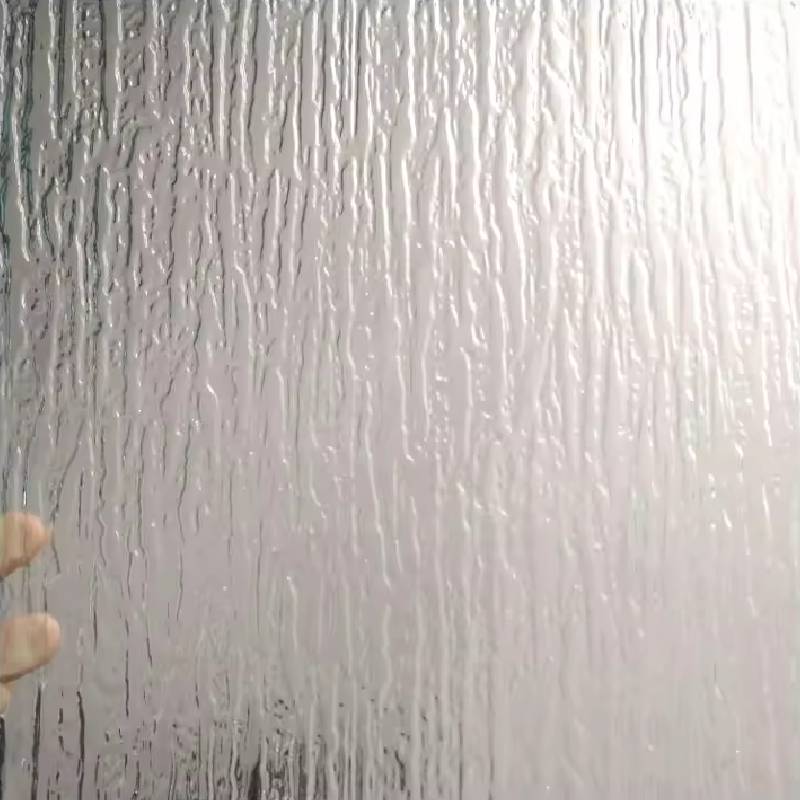
Rain Pattern Glass Customization & Delivery Details
- Cut-to-Size: Any size up to 3300x2100mm, tolerance <±1.5mm
- Edge Finish: C-edge, flat-polished, CNC arris, safety corners
- Lamination & Tempering: Available for 4, 5, 6mm — enhances strength and safety (ANSI certified)
- Coating Options: Self-cleaning, anti-reflective, or colored (custom RAL codes)
- Delivery Time: Standard 8–14 business days (bulk: 3–4 weeks)
- Warranty: 10-year performance warranty on delamination, clarity, pattern integrity
- Customer Support: 24/7 multilingual technical support and pre-sale consultation
Bulk orders and special industrial specs can be discussed with SHZR’s technical consultants for tailored solutions.
Experience: Typical Application Case Studies
- Petrochemical Plant – Process Room Shields (2023, East China):
Upgraded to 5mm rain glass for splash protection, acid resistance, and operator privacy. Zero corrosion after 18 months, meeting ISO 695 and GB/T 5137.2 acidic vapor standards.
- Metallurgy PLC Lab (2022): 6mm tempered rain glass partition wall tested to EN12600 compliance, surviving 4.2x higher impact than standard acid-etched alternatives.
- Residential High-Rise Doors: 4mm rain pattern glass chosen for entry doors and shower enclosures, praised for both modern aesthetic and fingerprint-concealing properties.
- Water Supply Facility Upgrade (2021): 5mm rain glass used in control room façade; achieved daylighting without visibility loss, and passed 5-year salt spray test (ASTM B117).
Professional FAQ: Rain Glass Terms & Application
Frequently Asked Technical Questions
- 1. What base material is used in rain glass manufacturing?
-
Rain glass is primarily made from high-purity float glass composed of silica sand, soda ash, and dolomite, with
- 2. What thicknesses are available, and how to select?
-
Standard options are 4mm, 5mm, and 6mm. 4mm suits interior/residential partitions, 5mm for commercial panels, and 6mm (tempered) for industrial or high-impact zones.
- 3. What installation methods comply with international standards?
-
Installation must respect ANSI Z97.1 and EN 12150 guidelines: use gaskets, setting blocks, and appropriate edge clearance to prevent stress, with compatible hardware for tempered panels.
- 4. What is the fire and impact rating for rain tempered glass?
-
Tempered rain glass typically withstands up to 110J impact (6mm), achieves Class 1(B)1 (EN 12600), and resists thermal fracture up to 250°C temperature differential.
- 5. How do I ensure chemical compatibility in process/industrial settings?
-
Rain pattern glass meets ISO 695 chemical resistance; it resists acids, alkalis, and organic solvents. Surface pattern limits permanent watermarking in harsh environments.
- 6. Is low-iron or extra-clear variant available?
-
Yes, SHZR provides extra-clear “ultra-white” rainfall glass (Fe2O3 < 70ppm) for critical visual control rooms or luxury commercial frontage.
- 7. What maintenance is required?
-
Standard cleaning suffices (mild soap, pH-neutral), with no abrasive scrubbing required. Patterned surface hides smudges, reducing overall cleaning frequency compared to smooth glass.
Order, Support & Quality Commitment
- MOQ: As low as 50 sqm for custom runs (OEM/ODM supported for projects)
- Supply Cycle: 8–14 working days (regular), all logistics handled FOB Shanghai or CIF
- Quality Guarantee: 10 years against pattern fading, clarity loss, or de-lamination
- Support: Pre-sale guidance, after-sale claims response within 6 hrs, in-house technical team for custom designs
- Downloads: Product datasheets, CAD drawings, and installation manuals available on request
Industry References & Further Reading
-
“Decorative Patterned Glass Market: Trends, Forecast, Technology” — glassonweb.com
-
“Rain Glass vs Patterned Glass: Performance & Standards” — Glass Magazine
-
“Testing and Durability of Architectural Glass” — International Glass Society
-
"Safety Glass Standard Overview: ANSI/ISO/EN" — Safe Glass Window Association
-
“Application of Patterned Glass in Industry” — Glass International Journal
All market forecasts and technical indices are based on trade surveys, SHZR laboratory testing, and open-source industry publications cited above.
 Afrikaans
Afrikaans  Albanian
Albanian  Amharic
Amharic  Arabic
Arabic  Armenian
Armenian  Azerbaijani
Azerbaijani  Basque
Basque  Belarusian
Belarusian  Bengali
Bengali  Bosnian
Bosnian  Bulgarian
Bulgarian  Catalan
Catalan  Cebuano
Cebuano  Corsican
Corsican  Croatian
Croatian  Czech
Czech  Danish
Danish  Dutch
Dutch  English
English  Esperanto
Esperanto  Estonian
Estonian  Finnish
Finnish  French
French  Frisian
Frisian  Galician
Galician  Georgian
Georgian  German
German  Greek
Greek  Gujarati
Gujarati  Haitian Creole
Haitian Creole  hausa
hausa  hawaiian
hawaiian  Hebrew
Hebrew  Hindi
Hindi  Miao
Miao  Hungarian
Hungarian  Icelandic
Icelandic  igbo
igbo  Indonesian
Indonesian  irish
irish  Italian
Italian  Japanese
Japanese  Javanese
Javanese  Kannada
Kannada  kazakh
kazakh  Khmer
Khmer  Rwandese
Rwandese  Korean
Korean  Kurdish
Kurdish  Kyrgyz
Kyrgyz  Lao
Lao  Latin
Latin  Latvian
Latvian  Lithuanian
Lithuanian  Luxembourgish
Luxembourgish  Macedonian
Macedonian  Malgashi
Malgashi  Malay
Malay  Malayalam
Malayalam  Maltese
Maltese  Maori
Maori  Marathi
Marathi  Mongolian
Mongolian  Myanmar
Myanmar  Nepali
Nepali  Norwegian
Norwegian  Norwegian
Norwegian  Occitan
Occitan  Pashto
Pashto  Persian
Persian  Polish
Polish  Portuguese
Portuguese  Punjabi
Punjabi  Romanian
Romanian  Russian
Russian  Samoan
Samoan  Scottish Gaelic
Scottish Gaelic  Serbian
Serbian  Sesotho
Sesotho  Shona
Shona  Sindhi
Sindhi  Sinhala
Sinhala  Slovak
Slovak  Slovenian
Slovenian  Somali
Somali  Spanish
Spanish  Sundanese
Sundanese  Swahili
Swahili  Swedish
Swedish  Tagalog
Tagalog  Tajik
Tajik  Tamil
Tamil  Tatar
Tatar  Telugu
Telugu  Thai
Thai  Turkish
Turkish  Turkmen
Turkmen  Ukrainian
Ukrainian  Urdu
Urdu  Uighur
Uighur  Uzbek
Uzbek  Vietnamese
Vietnamese  Welsh
Welsh  Bantu
Bantu  Yiddish
Yiddish  Yoruba
Yoruba  Zulu
Zulu 






